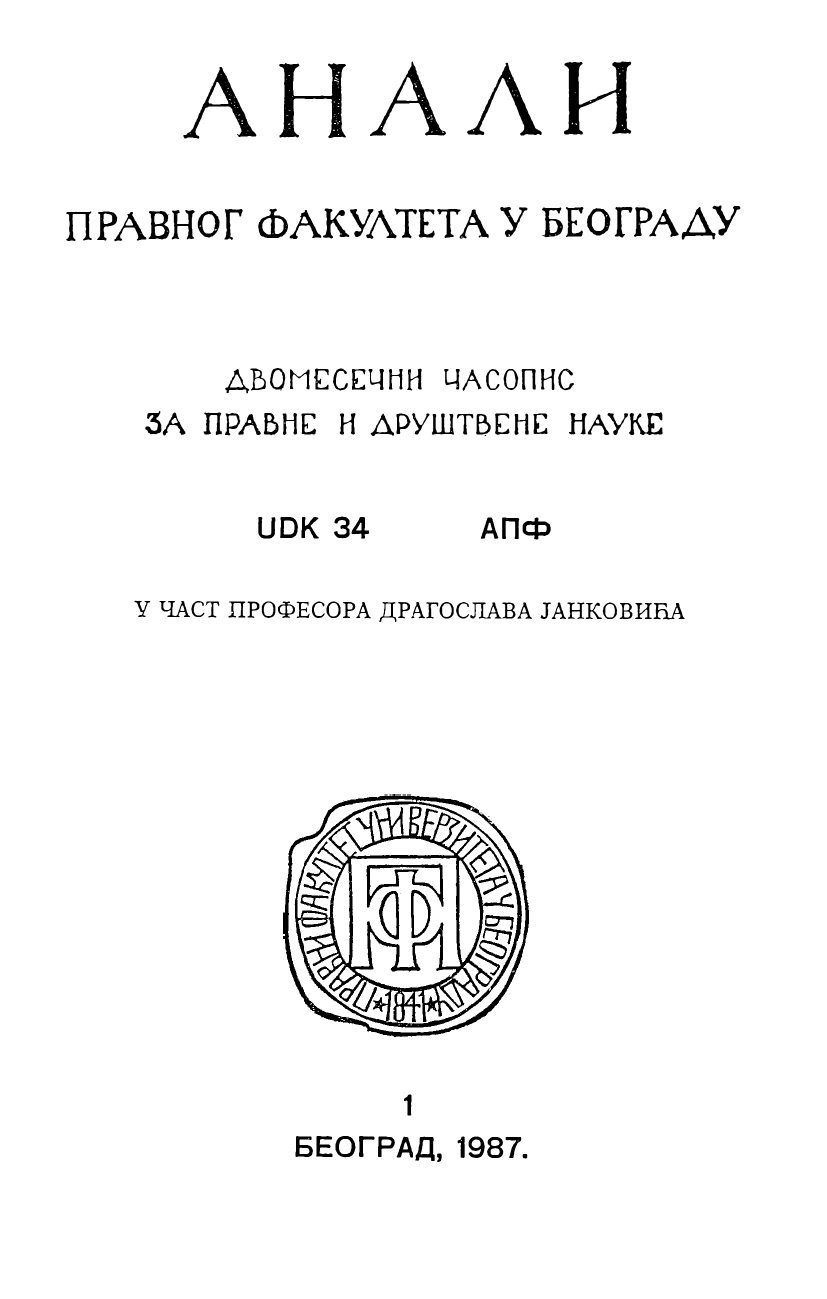SERBESTIYET У ОСМАНСКОМ ФЕУДАЛНОМ ПРАВУ
SERBESTIYET IN THE OTTOMAN FEUDAL LAW
Author(s): Avdo SućeskaSubject(s): History, Law, Constitution, Jurisprudence, History of Law, Special Historiographies:, The Ottoman Empire
Published by: Правни факултет Универзитета у Београду
Summary/Abstract: Serbestiyet in the classical Ottoman law has a meaning similar to that of the institute of immunity, i. e. immunitas in the feudal law in the West. Not all the owners of the feuds in the Ottoman feudalism (timar system) were entitled to serbestiyet. Entitled to it were only the owners of the zaemet, hases (sultan, viziers, beyler-beys, sanjac rulers, Moslem religious memorials (vaqf), and only a limited number of holders of the right of timar. Their lands therefore had the denomination serbest (free)- Owners of smaller feuds (timars) had no right to serbestiyet, so that their possessions were know as serbest degil or serbestsiz (not free). Holders of the serbest possessions had economic and adminitrative-police immunity, while the holders of the serbestsiz lands had only a limited economic immunity. They were all deprived of judicial immunity, since the right of exerting justice to all, including landowners (spahis) and common people (raya), belonged to the judicial body, namely kadi. Beginning from the eighteenth century, the term serbestiyet is found in Ottoman accounts of travels, in diplomatic, and even in legal acts, meaning „freedom", „autonomy", and the like. These are but new meanings of this term which have developed under the influence of the West-Euro- pean terminology of the times.
Journal: Анали Правног факултета у Београду
- Issue Year: 35/1987
- Issue No: 1
- Page Range: 112-117
- Page Count: 6
- Language: Serbian

